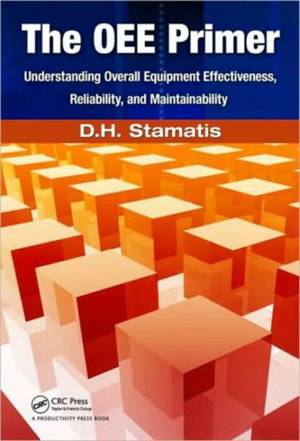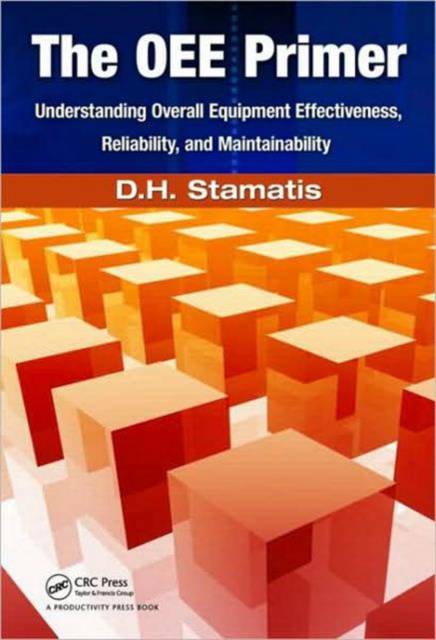
- Retrait gratuit dans votre magasin Club
- 7.000.000 titres dans notre catalogue
- Payer en toute sécurité
- Toujours un magasin près de chez vous
- Retrait gratuit dans votre magasin Club
- 7.000.000 titres dans notre catalogue
- Payer en toute sécurité
- Toujours un magasin près de chez vous
The Oee Primer
Understanding Overall Equipment Effectiveness, Reliability, and Maintainability
D H StamatisDescription
A valuable tool for establishing and maintaining system reliability, overall equipment effectiveness (OEE) has proven to be very effective in reducing unscheduled downtime for companies around the world. So much so that OEE is quickly becoming a requirement for improving quality and substantiating capacity in leading organizations, as well as a required area of study for the ISO/TS 16949.
Breaking down the methodology from a historical perspective, The OEE Primer: Understanding Overall Equipment Effectiveness, Reliability, and Maintainability explores the overall effectiveness of machines and unveils novel methods that focus on design improvement--including hazard analysis, rate of change of failure (ROCOF) analysis, failure rate finite element analysis (FEA), and theory of inventive problem solving (TRIZ). It covers loss of effectiveness, new machinery, electrical maintenance issues, Weibull distribution, measurement techniques, and mechanical and electrical reliability. The book also:
- Discusses Reliability and Maintainability (R&M), not as tools to be used in specific tasks, rather as a discipline
- Covers the application of OEE as an overall improvement tool
- Assesses existing and new equipment from classical, reliability, and maintainability perspectives
- Includes downloadable resources with more than 100 pages of appendices and additional resources featuring statistical tables, outlines, case studies, guidelines, and standards
Introducing the classical approach to improvement, this book provides an understanding of exactly what OEE is and how it can be best applied to address capacity issues. Highlighting mechanical and electrical opportunities throughout, the text includes many tables, forms, and examples that clearly illustrate and enhance the material presented.
Spécifications
Parties prenantes
- Auteur(s) :
- Editeur:
Contenu
- Nombre de pages :
- 670
- Langue:
- Anglais
Caractéristiques
- EAN:
- 9781439814062
- Date de parution :
- 04-06-10
- Format:
- Livre broché
- Format numérique:
- Trade paperback (VS)
- Dimensions :
- 175 mm x 249 mm
- Poids :
- 1043 g







